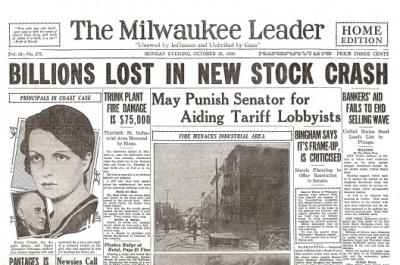The Bucket Shop Laws :The Act That Opened The Pandora’s box
In 2000, congress passed the “bucket shop” laws, which restricted regulation of credit default swaps. It was passed under The Commodity Futures Modernization Act of 2000. The Act basically deregulated Over The Counter (OTC) derivatives, which from that point created a booming Credit Default Swap (CDS) market and other exotic derivatives such as SIV, CMO, etc. (another alphabet soup!). AIG alone sold over $500 billion in CDS’s, which ended in billions of losses and almost brought the whole financial system on the brink of collapse. CDS’s magnified the losses from sub-prime mortgages, and since the banks and other financial entities didn’t hold enough capital to cover losses from these swaps (in unregulated markets, companies doesn’t have to keep a minimum reserve, like banks do on deposits), it spread into a whirlwind panic in the credit market ending in trillions in paper losses. Banning regulation of these Derivatives had to be one the most costly mistakes of the government in recent times.
The country was under a sever credit crisis starting in 2007 and the government stepped in and passed the Emergency Economic Stabilization Act of 2008 in October. The act allowed the government to spend $700 billion in cash injection for banks and co’s in liquidity risk, and to buy distressed assets (like CDS and other mortgage backed securities!) from public corporation’s, in order to stabilize the economy. This billions is bailout for the company showed how badly greed in wallsteet and lax regulation in Washington can lead to sever recessions and loss of millions of jobs in main street.
http://en.wikipedia.org/wiki/Emergency_Economic_Stabilization_Act_of_2008












